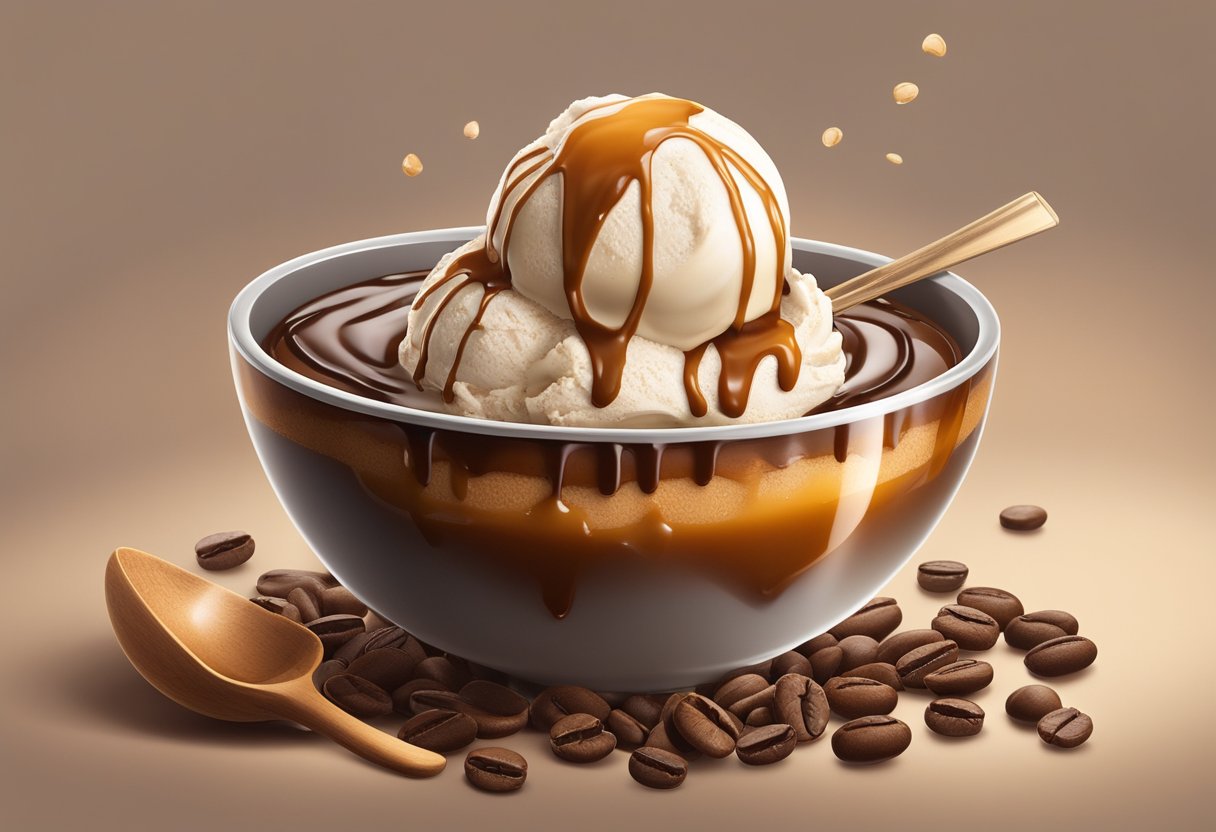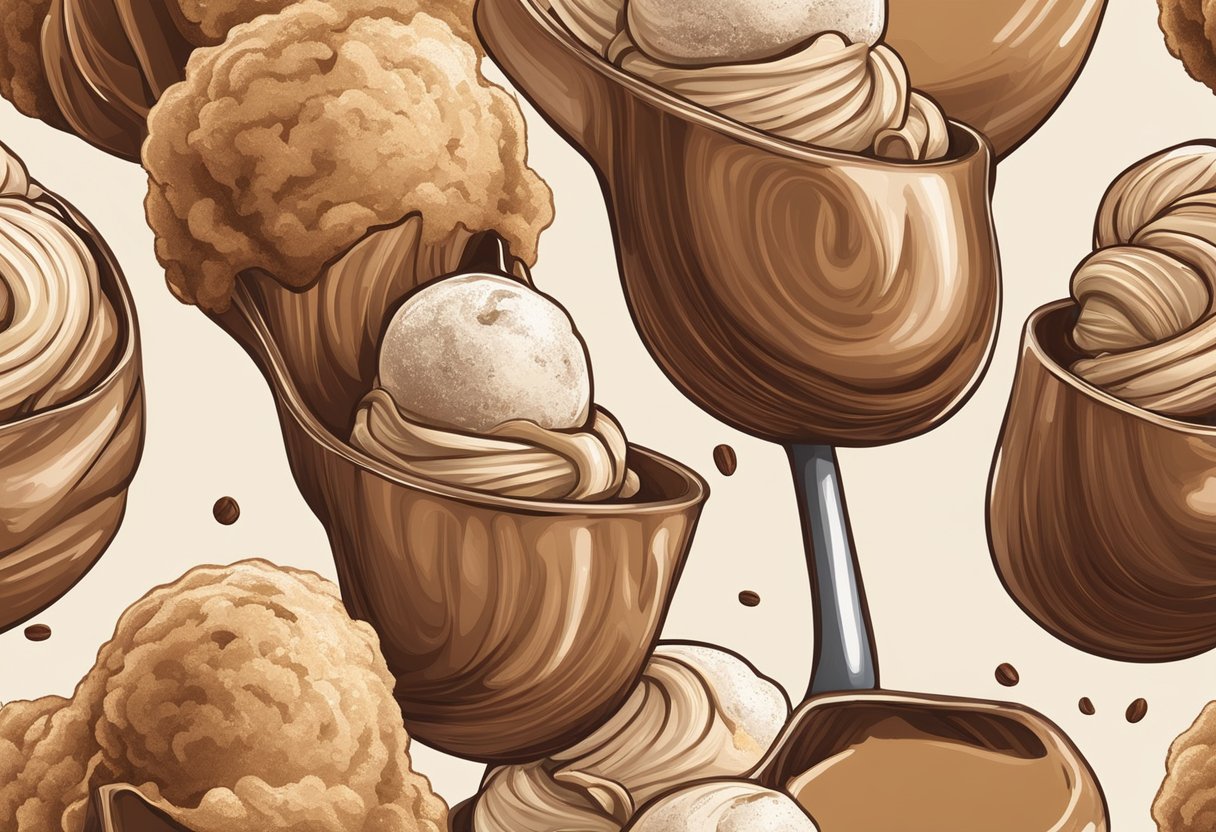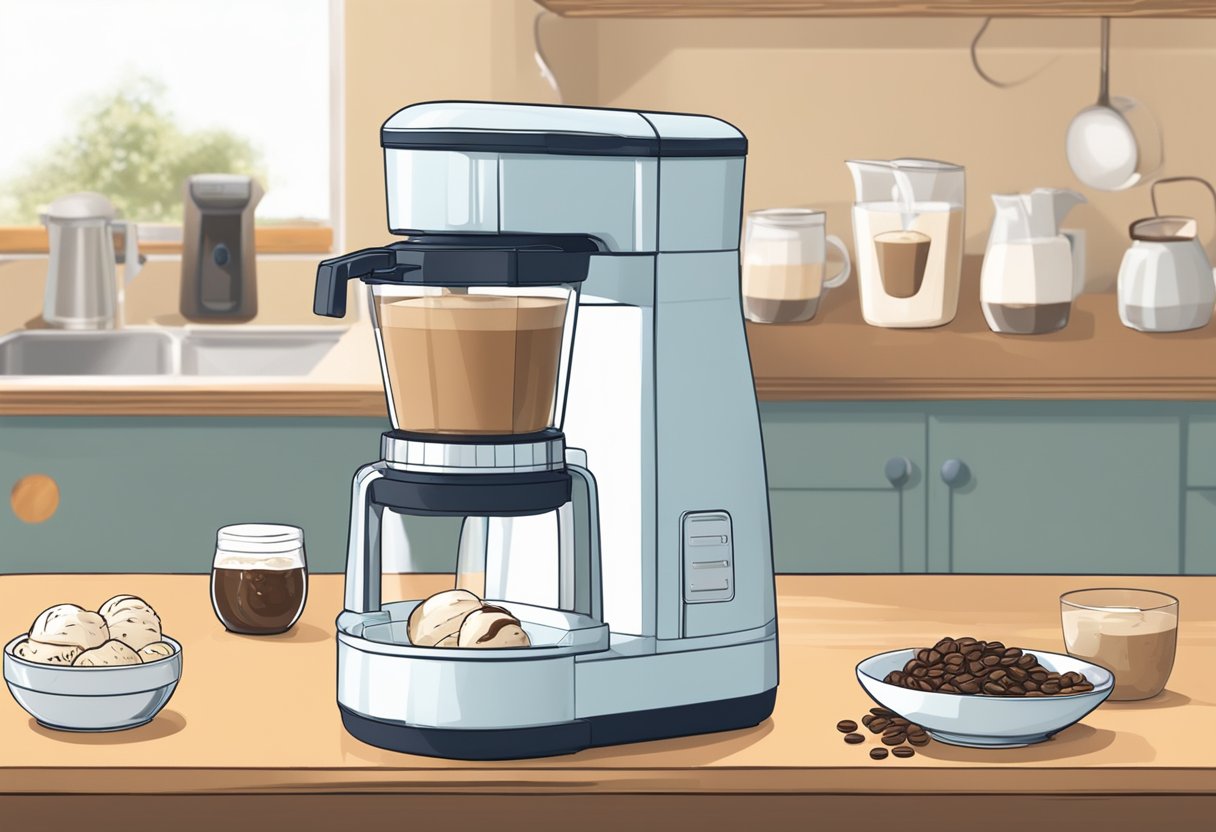1-800-982-4730
1-800-982-4730
Coffee ice cream is a popular dessert that combines two of the most beloved flavors: coffee and ice cream. However, many people wonder if this delicious treat contains caffeine. The answer to this question is yes, coffee ice cream does contain caffeine. The amount of caffeine can vary depending on the recipe and the amount of coffee used, but it is important to note that even a small amount of caffeine can have an impact on your body.

According to various sources, a ½ cup serving of coffee ice cream can contain anywhere from 21.6 mg to 45 mg of caffeine. This is roughly equivalent to a couple sips of coffee or a shot of espresso. While this may not seem like a lot, for those who are sensitive to caffeine, consuming coffee ice cream before bedtime could potentially keep them awake. It is important to keep this in mind when deciding whether or not to indulge in this delicious dessert.
If you are a coffee lover who enjoys the taste of coffee but wants to avoid the caffeine, there are alternatives available. Some coffee shops offer decaf coffee ice cream, which contains little to no caffeine. Additionally, there are many recipes available online that allow you to make your own coffee ice cream at home using decaf coffee. By making this simple substitution, you can enjoy the taste of coffee ice cream without the stimulating effects of caffeine.

Coffee ice cream is a popular dessert that combines two beloved flavors: coffee and ice cream. One of the most common questions people ask about coffee ice cream is whether it contains caffeine or not. The answer is yes, most coffee ice creams contain caffeine, but the amount can vary depending on the brand, recipe, and type of coffee used.
Different brands of coffee ice cream have varying amounts of caffeine content. For example, Häagen-Dazs' coffee ice cream has 21.6 mg of caffeine in a 1/2 cup serving, which is a little more than 1/4 cup of brewed coffee. On the other hand, Talenti's coffee gelato has 60 mg of caffeine in a 1/2 cup serving, which is equivalent to a shot of espresso. Dreyer's coffee ice cream has 25 mg of caffeine per 1/2 cup serving, while Straus' organic coffee ice cream has 20 mg of caffeine in a 1/2 cup serving. Nightfood's Midnight Chocolate Crunch ice cream has 10 mg of caffeine per 1/2 cup serving, and Blackbean's coffee ice cream has 5 mg of caffeine per 1/2 cup serving.
Even decaf coffee ice cream contains small amounts of caffeine because most recipes use decaffeinated coffee, which still has around 7 mg of caffeine per 8 oz serving. However, the amount of caffeine in decaf coffee ice cream is significantly lower than regular coffee ice cream. On average, a serving of regular coffee ice cream, typically half a cup or 4 ounces, can contain anywhere from 5 to 60 mg of caffeine, depending on the brand and recipe. In contrast, a serving of decaf coffee ice cream will have less caffeine because of all the other ingredients.
It is important to note that the amount of caffeine in coffee ice cream can also depend on the type of coffee used. For example, coffee extract has more caffeine than brewed coffee, and espresso has more caffeine than a regular cup of coffee. Additionally, the USDA allows a certain amount of variation in caffeine content for different types of coffee beans, which can affect the caffeine content in coffee ice cream.
Overall, coffee ice cream does contain caffeine, but the amount can vary significantly depending on the brand, recipe, and type of coffee used. For those who are sensitive to caffeine or trying to limit their caffeine intake, decaf coffee ice cream may be a better option.

To make homemade coffee ice cream, the ingredients required are milk, cream, sugar, egg yolks, and coffee. The quality of coffee used will determine the flavor of the ice cream. Arabica beans are the best type of coffee beans to use because they have a smoother taste. Instant coffee can be used in place of real coffee, but it may affect the overall flavor of the ice cream.
The brewing method for coffee ice cream is similar to that for regular coffee. Brew a strong pot of coffee and let it cool. In a medium pot, combine the sugar, heavy cream, milk, and salt. Place the pot over medium heat and stir frequently until the sugar is dissolved. Do not let the mixture boil. Remove from heat.
Meanwhile, in a medium bowl, whisk together the egg yolks. Remove 1/3 cup of the warm cream mixture from the pot and slowly pour it into the egg yolks, whisking constantly. This is called tempering, and it prevents the eggs from curdling when added to the hot cream mixture.
Pour the egg mixture back into the pot with the remaining cream mixture and stir well. Add the cooled coffee to the pot and stir to combine. The mixture should be smooth and creamy.
The mixture should be chilled before freezing. This can be done by placing the mixture in the refrigerator for a few hours or overnight. Once chilled, pour the mixture into an ice cream maker and follow the manufacturer's instructions.
The ice cream will have a coffee flavor and a slight caffeine buzz. It can be enjoyed on its own or as a topping for desserts like brownies and cakes.

Consuming coffee ice cream can have varying effects on individuals depending on their sensitivity to caffeine. Caffeine is a natural stimulant that is commonly found in coffee and other beverages. When consumed, caffeine can boost energy levels and increase alertness and cognitive function. However, excessive caffeine intake can lead to side effects such as insomnia, difficulty sleeping, jitters, anxiety, digestive issues, stomach upset, fatigue, and irritability.
Caffeine sensitivity varies from person to person and can be influenced by factors such as age, weight, and genetics. Some individuals may experience the effects of caffeine more strongly than others and may need to limit their caffeine intake accordingly. It is recommended that individuals with a low tolerance for caffeine consume no more than 200mg of caffeine per day.
When consuming coffee ice cream, it is important to consider the amount of caffeine present in the product. While the caffeine content in coffee ice cream can vary based on the amount of coffee used in the recipe, most brands contain at least some caffeine. It is important to note that the caffeine content in coffee ice cream is typically lower than that of a cup of coffee or other caffeinated beverages.
Individuals with caffeine sensitivity may experience side effects such as difficulty sleeping, jitters, anxiety, and digestive issues when consuming coffee ice cream. It is recommended that individuals with caffeine sensitivity limit their intake of coffee ice cream or opt for caffeine-free alternatives.
In conclusion, caffeine from coffee ice cream can have varying effects on individuals depending on their sensitivity to caffeine. It is important to consider the amount of caffeine present in the product and to limit intake accordingly to avoid potential side effects.